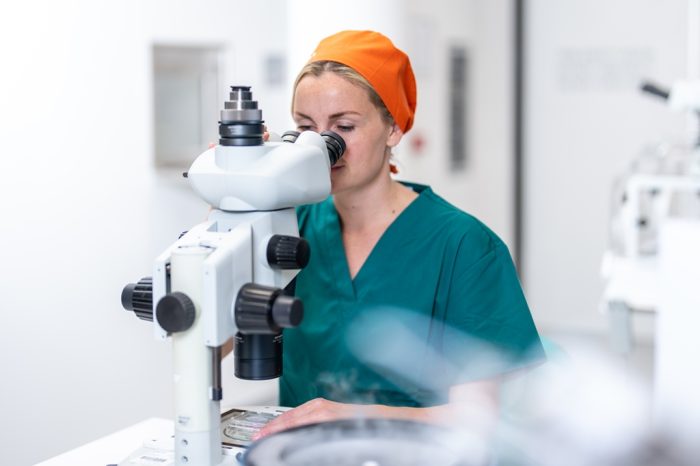
While fertility treatment often focuses on the female partner, assessing male fertility is just as important in understanding why a couple may be struggling to conceive. Today, standard tests alone don’t always reveal the full picture of male reproductive health.
Traditionally, a Semen Analysis has been the cornerstone of assessing male fertility. This test looks at sperm count, motility (how well sperm swim) and morphology (shape). While these measures are essential, they don’t always explain why some couples face unexplained infertility or repeated IVF failures.
That’s where sperm DNA fragmentation testing (also known as Halosperm Testing) comes in.
What is sperm DNA fragmentation?
Simply put, DNA fragmentation refers to breaks or damage in the genetic material within sperm. High levels of fragmentation can reduce the chance of fertilisation, impact embryo development and increase the risk of a miscarriage. This damage isn’t detected by routine a routine Semen Analysis.
Why does DNA fragmentation occur?
Several factors can contribute to DNA damage in sperm including oxidative stress, lifestyle influences (like smoking or excessive heat exposure), infections and ageing. DNA damage within sperm can inhibit their ability to function properly.
How does this affect treatment?
DNA damage in sperm has been linked to an increase in recurrent pregnancy loss, recurrent implantation failure of embryos, poor embryo development, reduced pregnancy and live birth rates and health complications in children.
Knowing about DNA damage in sperm helps us tailor fertility treatment option for our patients. For example, advanced sperm selection techniques during IVF or ICSI can improve outcomes. It may also highlight the importance of lifestyle changes or antioxidant therapy.
The future is bright.
There’s good reason to feel optimistic. Studies show that making healthy lifestyle changes can lead to meaningful improvements in sperm quality over time. Since sperm regenerate approximately every three months, we recommend a follow-up test after this period to assess any changes.
If you or your partner are facing fertility challenges, asking your treating fertility doctor about sperm DNA fragmentation testing (or Halosperm Testing) may provide valuable insights and help guide your treatment journey.
"*" indicates required fields